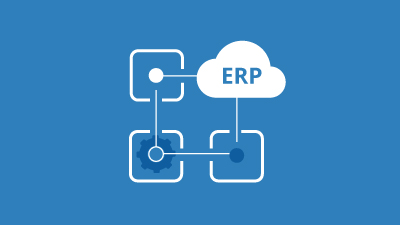Utilizing Cloud ERP in Field Service Management

Companies in the Field Service industry have different needs than businesses that work predominantly in office. Employees are working remotely and have limited contact with supervisors and other team members. It comes as no surprise that field service companies require the proper technology to ensure that all employees are connected and able to conduct business just as smoothly as in-house staff.
By implementing a cloud-based ERP system, employees who work in the field have access to company information and data that enables them to make better decisions and provide the best service possible.
A modern ERP solution can help organizations focused on field service by connecting customer service, inventory management, dispatching, routing, accounting, and billing — all in a single workflow. Here are some of the ways an ERP can fill in the gaps for remote teams.
One Seamless System
When a team is working in real-time, it is up-to-date with the latest information, which greatly helps continuity. This is even more relevant for field workers, who would otherwise be detached from the company’s central office.
An ERP system eliminates the burden of entering data various times and into disparate systems. Having information in one succinct system helps service technicians to complete orders more efficiently and accurately, and then have more time remaining to focus on client matters and build relationships.
When information is collected in a seamless integration, visibility is easy to attain. Teams and management are able to review and analyze data that reveal both weaknesses and strategic growth points.
Service Management
Customers view service technicians as their personal advisor; arming these employees with resources available through an ERP system give them a solid advantage in the field. Employees have full visibility into the entire quotation process — by viewing the end-to-end process, they are better able to identify and convert more gains.
Being able to impress new prospects by moving forward swiftly is a clear advantage, while keeping an eye on recurring service contracts that bring in significant revenue is also essential. Dashboards can be created to alert service teams of expiring contracts, so that relationships can be extended before crunch time. With state-of-the-art technology, it’s even easy to manage multiple service schedules per customer. There are other handy features such as equipment maintenance, which ensures on-site systems are running properly and efficiently.
Mobility
With a cloud-based ERP solution a company expands its work options; all that’s needed to keep staff connected is access to a browser or WiFi access to utilize apps for both Android or iOS via smart phone, tablet or laptop. Implementing modern technology gives teams access to service information, customer data, and other vital information — anywhere and at any time.
Flexibility has many advantages, one of which is giving service technicians detailed and timely information during the quotation process. Being able to provide on-demand estimates provides remote sales associates the chance to up-sell, which can drive even more revenue generation.
Being able to access the same systems as in-office staff keeps teams in the field aware of updates in real-time. Employees are able to log in and log out during shifts, eliminating the needs for time cards, which are notoriously lost and damaged in transit.
Connectivity
Dispatch or the call center has improved communication with field employees; the ERP makes it easy to see where employees are at any given time. GPS integration enables the central office to make route changes or assign emergency calls to employees that have the bandwidth and are in close proximity. Dispatch can then keep customers informed if a field technician is running behind schedule or needs to make a quick scheduling change
Clear visibility through Google Maps is also of benefit to teams working remotely. Technicians aren’t guessing at which route is the fastest and can see obstacles that could otherwise take them off schedule well in advance — if traffic conditions change, updates will alert all parties. Graphic displays of plotted routes are visible on both ends of the spectrum, so dispatch and field employees are able to track workflow.
The Acumatica Advantage
Deciding on an ERP and Field Service Software is a challenge, often driven by industry pressures, new regulations, rapid growth, or outdated technology, and too often companies wait until it’s too late to decide on a platform and partner.
Field Service companies can benefit from implementing a cloud-based ERP, improving internal efficiency and growing the organization’s bottom line. Acumatica’s Field Service Edition connects back office with those working remotely in real-time, maintaining operations and customer activity in a seamless integration.
Cloud 9 ERP Solutions is an expert in delivering business management solutions to companies in the field service industry. Get to know more about how we work, who we’ve helped, and why we’ve been a leader in the business for nearly three decades by contacting us for a free consultation.
Click here to read one of our latest field service case studies or watch the video below.
Additional Field Service Resources
Inventory Management in Field Service: A Unique Challenge
Choosing a Field Management Software: Features to Look For
Can You Afford the Shortcomings of a "Bolted On" Field Service Management Platform?



